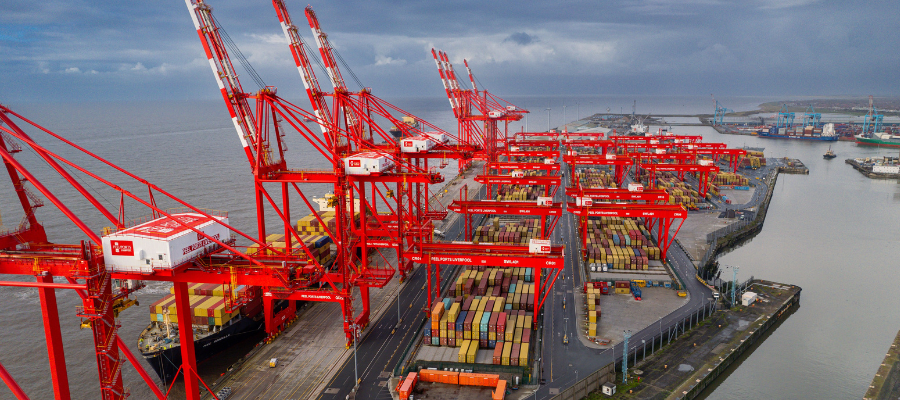🕒 Article read time: 2 minutes
2PUK - Why a change in maritime logistics could help UK retail weather economic challenges
Sponsored content

By Marcus Connolly, Strategic Commercial Director, Port of Liverpool
The retail sector stands as a cornerstone of the British economy, driving forward employment, generating GDP, and – literally - opening the door for consumer spending. Indeed, the UK’s dynamic retail industry accounts for 5 percent of the country’s economic output, contributing £98 bn in Gross Value Added and facilitating the employment of some three million people. Retailers contribute £17bn in business taxes, and as the sector continues to grow, is expected to create £381bn in spending this year.
However, despite the sector holding this wealth of potential for growth, one of the major challenges facing retail is the movement of goods from manufacturers to consumers. The vulnerabilities of the supply chain have been made stark, from covid shutting down container terminals in Asia, to drought in the Panama Canal and now most recently vessel diversions around Africa to avoid the Red Sea.
The issues are not just offshore either. The UK has a major structural problem such that, how goods are imported to UK, undermines the retail sector creating unnecessary cost, congestion and carbon emissions.
For example, 90% of all deep-sea containerised goods enter Britain via southern ports, despite more than 60% being destined for regions north of Birmingham.
This artificial centre of gravity for the supply chain, restricted to the country’s south-eastern corner, leads to numerous challenges, including insufficient rail capacity, congested roads, cargo delays, ineffective landside logistics and extra pollution caused by long unnecessary road journeys. When combined, these present sizeable issues for industry leaders.
While these problems persist, the UK’s retail sector will always be hampered as it looks to fulfil its promise. However, there is a solution, which is to bring forward an integrated import strategy which will see goods arriving closer to their end destination. Using northern ports – as well as southern ports - as a second gateway to the UK will unlock supply chain efficiencies and build enhanced connectivity to major distribution hubs.
It will facilitate better landside fleet management, enabling the decarbonisation of inland logistics, while also putting a line of defence against diminishing road haulage capacity. The introduction of shorter journeys will minimise the potential for delays too.
For retailers, an aligned multi-port strategy makes perfect sense. Indeed, from Peel Ports Group’s own 2023 Retailer Survey, some 76% of retail business leaders said they would import goods closer to end destinations if given the choice, with 79% highlighting better transportation of goods via sea into the UK is needed to reduce delays, congestion, and emissions. And among the top priorities of those surveyed was reducing carbon emissions and minimising delays from traffic congestion.
With industry leaders crying out for a shake-up of the supply chain, Peel Ports Group has written to major shipping lines to address the issues caused by the currently outdated import model. It is presenting ‘2PUK’ – a north-south, two-port UK strategy that leverages UK port capacity and capability, and their proximity to market, to create a roadmap for a robust, efficient supply chain.
Backed by industry leaders, 2PUK would deliver more integrated UK logistics, delivering certainty and resilience across the supply chain. It will bring to the fore a better distribution model, simplifying logistics, significantly reducing landside supply chain CO2 emissions, cutting congestion, and relieving the pressure on overwhelmed southern ports and UK rail network capacity.
The impending problem of UK rail freight and road haulage capacity is such that the current model is not sustainable. Add to this UK plc priority to decarbonise the supply chain and it is clear that a different model is needed. The answer lies in bringing the cargo nearer its end destination. Doing so will simplify landside distribution, reduce UK road and rail congestion and reduce emissions. It will ensure supply chain reliability and reduce total supply chain cost.
For industry, implementing 2PUK must be the way forward. It represents a significant opportunity to disrupt the market for the better, to innovate, and to create better logistics solutions. We must seize it with both hands.
Published On: 07/03/2024 16:00:00

Comments Section
If you are a Logistics UK member login to add comments.